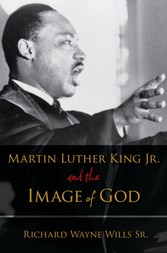Search and Find
Service
Martin Luther King, Jr., and the Image of God
Scholars universally acknowledge the role that Christian belief played in the social movement engendered by Martin Luther King Jr. Yet few have actually delved into the complexity of Kings theology itself. The centrality of one aspect of his theology in particular - imago Dei, the belief that human beings are made in Gods image - has been surprisingly overlooked. In this book, Richard W. Wills Sr. offers a comprehensive analysis of Kings appeal for civil rights by investigating his understanding of imago Dei. Wills begins by tracing the evolution of this idea through the history of Christian thought, showing the intellectual sources King drew on in constructing his own beliefs. Wills then demonstrates how King employed this idea in his civil rights work. The belief that we are all made in Gods image was crucial, Wills shows, to Kings understanding of human nature and equality. While King shared with many of his black church forebears the view that humanitys creation by God was a powerful argument for the equality of all people, he also took the concept much further. For King, being made in Gods image meant that human beings have not only the right but also the power to reshape society and to build a beloved community on earth. Though explicitly grounded in Christian faith, the doctrine of imago Dei provided King with a theological rationale that was capable of addressing the needs of the community well beyond the walls of churches. Willss thorough reconsideration Kings thought makes the case for his importance as a theologian. It convincingly demonstrates that the concept of imago Dei formed the heart of his theology and, in turn, that his theology was central to the unfolding of the civil rights movement.
All prices incl. VAT













